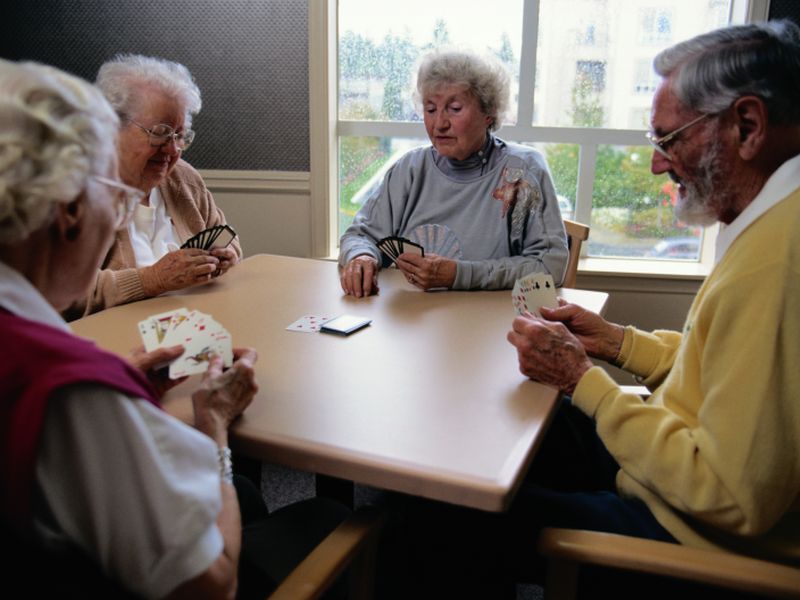
Monday, February 20, 2017

MONDAY, Feb. 20, 2017 (HealthDay News) -- Socializing with lots of relatives and friends may help you stay mentally sharp as you age, a new report co-sponsored by AARP finds.
"It's not uncommon for our social networks to shrink in size as we get older," said Marilyn Albert, professor of neurology and director of cognitive neuroscience at Johns Hopkins University in Baltimore.
"This report provides many helpful suggestions about the things we can do to improve the quality of our relationships with family and friends, which may be beneficial in maintaining our mental abilities," Albert said in an AARP news release.
The report also discusses the social benefits of having pets, how age-friendly communities boost social ties, how close relationships benefit both physical and mental health, and how social media (including Facebook and Skype) helps older adults maintain social connections.
The report is from the AARP and the Global Council on Brain Health (GCBH). Albert is chair of the GCBH.
In related news, a new AARP survey found that nearly four in 10 adults aged 40 and older said they lack social connections. Those people also reported worse brain health.
Sarah Lock is AARP senior vice president for policy and GCBH executive director. She said, "We know that loneliness and social isolation can increase physical health risks for older people."
So, Lock added, "The GCBH's consensus that people who are socially engaged have a lower risk for cognitive [mental] decline shows us just how important social connections are to brain health."
The AARP said older adults can boost their social ties by making new social connections, including with younger people. Other suggestions include joining a club or taking a class; visiting, calling or emailing regularly with relatives, friends, and neighbors; and volunteering or visiting a lonely neighbor or friend.
SOURCE: AARP, news release, Feb. 14, 2017
HealthDay
Copyright (c) 2017 HealthDay. All rights reserved.
News stories are written and provided by HealthDay and do not reflect federal policy, the views of MedlinePlus, the National Library of Medicine, the National Institutes of Health, or the U.S. Department of Health and Human Services.
- More Health News on:
- Healthy Aging





























.png)











No hay comentarios:
Publicar un comentario